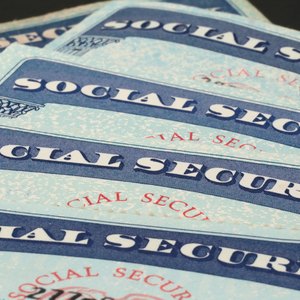
You've been working for years, and now you're thinking about retirement and claiming your Social Security benefits. Americans can start collecting Social Security early at age 62, or you could wait until full retirement age (FRA) or even later. But which choice makes the best sense for you?
Let's look at the advantages and disadvantages of taking Social Security early and the factors you will need to consider.
Options for Taking Social Security
You have the eligibility to claim Social Security benefits as early as age 62 and as late as age 70. The decision of when to start taking Social Security benefits is complicated. If you start early, your monthly benefit checks will be lower and you may receive less in total lifetime benefits. You'll get larger payments if you start later, but the benefit amount may come over fewer years.
In general, the earlier you decide to start taking benefits, the less you will receive each month. According to the Social Security Administration, if you decide to take your benefits at age 62, you will only receive around 75 percent of the benefit you would receive at the full retirement age of 66. However, if you wait until age 70, you will receive about 132 percent of your benefit from age 66. You can wait to start drawing benefits beyond age 70, but there's no reason to do so since the monthly payment amounts will not continue to increase.
Full retirement age is the age at which you receive 100 percent of your benefits.
There isn't an exact answer as to when you should start drawing your Social Security benefits, and several of the factors that control the amount you receive as a retiree over your lifespan are largely beyond your control.
Read More: Advantages & Disadvantages of Social Security
Factors You Need to Consider
These are the factors that will affect your decision:
Life expectancy - A major part of your strategy on when to start taking Social Security benefits depends on how long you expect to live. Nobody has an answer to that question, but you don't have to guess to decide on a strategy. Are you in good health and expect to live longer? Or do you have high blood pressure and problems with cholesterol? Are you overweight?
If you believe you'll have an above-average life expectancy, you might be better off waiting until later to claim your benefits. On the other hand, if you have health concerns, you'll probably want to claim your benefits earlier.
Employment - If you intend to take your benefits before full retirement age and you plan to continue working, a portion of your Social Security benefits could be reduced. The Social Security Administration applies a retirement earnings test to determine whether to withhold a portion or all of your benefits.
Here's how this works. If you decide to take your benefits early and you won’t reach your FRA in 2020, the SSA may reduce your benefits by $1 for each $2 that you earn above $18,240 per year. The good news is that your Social Security benefits will not be reduced after you reach full retirement age no matter how much income you earn.
Needs - What other retirement income or retirement savings will you have? If your retirement planning calls on your Social Security income to support your lifestyle in retirement, then you'll have to take your benefits when you need them, regardless of your health and other factors.
Spousal options - As a married couple, you and your spouse are entitled to two types of benefits: survivor and spousal. If either one of you decides to take benefits early, this decision could affect the amount that the other receives as survivor benefits because the reduction in the amount of early benefits is permanent. So your decision on whether to take early benefits and accept the lower amount will also affect the amount your spouse receives in retirement. Will that be enough for your spouse?
Comparisons of Benefit Options
To understand what all of these options mean and the differences they can make, let's take an example. (You will find additional info at ssa.gov.) Suppose John, age 61, is trying to decide whether to take early benefits or wait. His life expectancy is another 21 years or until age 82.
John’s Social Security statement shows how much he will receive at different ages:
- Age 62: $1,658/month ($2,240 times 0.74) or $19,896 annually
- Age 66: $2,240/month or $26,880 annually. This is the full retirement amount.
- Age 70: $2,957/month ($2,240 times 1.32) or $35,484 annually
Here are the lifetime benefits for John:
Start drawing benefits at age 62 - At $19,896 per year, if John lives another 21 years, he will receive total lifetime benefits of $417,816 (21 years times $19,896).
Wait until full retirement age of 66 - At FRA, John will live another 17 years and receive total benefits of $456,960 ($26,880 times 17 years).
Wait until age 70 - John can expect to live another 13 years, and he would receive full benefits of $461,292 ($35,484 times 13 years).
From these calculations, John would receive the highest lifetime return if he waited until age 70 to start drawing benefits. If John remains healthy and he lives beyond the projected life expectancy, then his decision to wait until age 70 looks even better.
But what if John wanted to take early retirement at age 62 and did not have another substantial source of retirement income besides Social Security? In that case, John would have to start drawing his Social Security benefits early in spite of the fact that his lifetime benefits would be higher if he waited until age 70. Sometimes there's just no choice.
Read More: Is Social Security Voluntary or Mandatory?
How to Decide When to Start Drawing Social Security Benefits
There is no best age for everyone to start their benefits. Each person's decision must be based on their own personal finance circumstances. Here are a few questions to ask yourself to make your own informed choice.
Will you continue to work after age 62? - Earning income before reaching full retirement age may reduce your Social Security benefits. If you're working, it might make more sense to start benefits later and not take the penalty of reduced benefits by taking early withdrawals.
What is your life expectancy? - If you're in good health and your family has a history of long lives, you may need the higher income gained by starting at age 70 in your later years, especially if you live beyond your other retirement funds or annuities.
What health insurance will you have? - If you have health insurance through your employer that covers your healthcare needs, you may lose that when you retire. In most cases, you can't sign up for Medicare until you reach age 65. So even if you don't take early withdrawals of Social Security benefits, you still need to sign up for Medicare; otherwise, you may wind up paying higher premiums at a later date.
Will you be eligible for survivor or spousal benefits? - If you have a spouse who doesn't work and will not be eligible for Social Security benefits, you have to consider the effects of early withdrawal on their income in retirement after you pass away.
Do you have other retirement income? - If you have saved regularly and have significant nest age of retirement assets, you may not have to rely on your Social Security benefits to support your lifestyle. If so, the decision of when to draw benefits becomes easier.
References
Writer Bio
James Woodruff has been a management consultant to more than 1,000 small businesses. As a senior management consultant and owner, he used his technical expertise to conduct an analysis of a company's operational, financial and business management issues. James has been writing business and finance related topics for work.chron, bizfluent.com, smallbusiness.chron.com and e-commerce websites since 2007. He graduated from Georgia Tech with a Bachelor of Mechanical Engineering and received an MBA from Columbia University.

